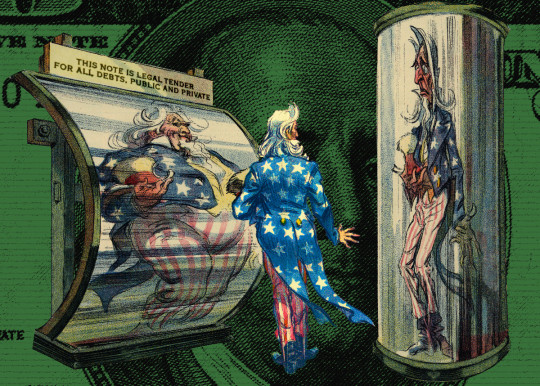#the warrens podcast
Explore tagged Tumblr posts
Text

they are passionately discussing manmade horrors beyond our comprehension :)
#strangely_epic#art#queer artist#fanart#digital art#digital artist#digital illustration#digital painting#illustration#procreate#procreate artist#procreate art#jabroni mike#jabroni_mike#jabroni mike fanart#jabroni mike maskboy#jazz mister#maskboy#teaowlart#fredrik knudsen#fredrikknudsen#fredrik knudsen fanart#astraline#the warrens#the warrens podcast#the warrens fanart#twitch fanart#this took 22 hours to make i hope it was worth it. also ive never properly drawn a couch before i hope it isnt obvious#also i know they have different character designs for the warrens but SHHHHH I WANTED TO DRAW THESE ONES DONT LOOK AT ME!!!
35 notes
·
View notes
Text
My genuine favorite genre of podcast is British guys not having a good time
#malevolent podcast#arthur lester#arthur malevolent#red valley#warren godby#gordon porlock#the magnus archives#jonathan sims#martin blackwood#re: dracula#johnathan harker
2K notes
·
View notes
Text
Retiring the US debt would retire the US dollar

THIS WEDNESDAY (October 23) at 7PM, I'll be in DECATUR, GEORGIA, presenting my novel THE BEZZLE at EAGLE EYE BOOKS.

One of the most consequential series of investigative journalism of this decade was the Propublica series that Jesse Eisinger helmed, in which Eisinger and colleagues analyzed a trove of leaked IRS tax returns for the richest people in America:
https://www.propublica.org/series/the-secret-irs-files
The Secret IRS Files revealed the fact that many of America's oligarchs pay no tax at all. Some of them even get subsidies intended for poor families, like Jeff Bezos, whose tax affairs are so scammy that he was able to claim to be among the working poor and receive a federal Child Tax Credit, a $4,000 gift from the American public to one of the richest men who ever lived:
https://www.propublica.org/article/the-secret-irs-files-trove-of-never-before-seen-records-reveal-how-the-wealthiest-avoid-income-tax
As important as the numbers revealed by the Secret IRS Files were, I found the explanations even more interesting. The 99.9999% of us who never make contact with the secretive elite wealth management and tax cheating industry know, in the abstract, that there's something scammy going on in those esoteric cults of wealth accumulation, but we're pretty vague on the details. When I pondered the "tax loopholes" that the rich were exploiting, I pictured, you know, long lists of equations salted with Greek symbols, completely beyond my ken.
But when Propublica's series laid these secret tactics out, I learned that they were incredibly stupid ruses, tricks so thin that the only way they could possibly fool the IRS is if the IRS just didn't give a shit (and they truly didn't – after decades of cuts and attacks, the IRS was far more likely to audit a family earning less than $30k/year than a billionaire).
This has become a somewhat familiar experience. If you read the Panama Papers, the Paradise Papers, Luxleaks, Swissleaks, or any of the other spectacular leaks from the oligarch-industrial complex, you'll have seen the same thing: the rich employ the most tissue-thin ruses, and the tax authorities gobble them up. It's like the tax collectors don't want to fight with these ultrawealthy monsters whose net worth is larger than most nations, and merely require some excuse to allow them to cheat, anything they can scribble in the box explaining why they are worth billions and paying little, or nothing, or even entitled to free public money from programs intended to lift hungry children out of poverty.
It was this experience that fueled my interest in forensic accounting, which led to my bestselling techno-crime-thriller series starring the two-fisted, scambusting forensic accountant Martin Hench, who made his debut in 2022's Red Team Blues:
https://us.macmillan.com/books/9781250865847/red-team-blues
The double outrage of finding out how badly the powerful are ripping off the rest of us, and how stupid and transparent their accounting tricks are, is at the center of Chokepoint Capitalism, the book about how tech and entertainment companies steal from creative workers (and how to stop them) that Rebecca Giblin and I co-authored, which also came out in 2022:
https://chokepointcapitalism.com/
Now that I've written four novels and a nonfiction book about finance scams, I think I can safely call myself a oligarch ripoff hobbyist. I find this stuff endlessly fascinating, enraging, and, most importantly, energizing. So naturally, when PJ Vogt devoted two episodes of his excellent Search Engine podcast to the subject last week, I gobbled them up:
https://www.searchengine.show/listen/search-engine-1/why-is-it-so-hard-to-tax-billionaires-part-1
I love the way Vogt unpacks complex subjects. Maybe you've had the experience of following a commentator and admiring their knowledge of subjects you're unfamiliar with, only have them cover something you're an expert in and find them making a bunch of errors (this is basically the experience of using an LLM, which can give you authoritative seeming answers when the subject is one you're unfamiliar with, but which reveals itself to be a Bullshit Machine as soon as you ask it about something whose lore you know backwards and forwards).
Well, Vogt has covered many subjects that I am an expert in, and I had the opposite experience, finding that even when he covers my own specialist topics, I still learn something. I don't always agree with him, but always find those disagreements productive in that they make me clarify my own interests. (Full disclosure: I was one of Vogt's experts on his previous podcast, Reply All, talking about the inkjet printerization of everything:)
https://gimletmedia.com/shows/reply-all/brho54
Vogt's series on taxing billionaires was no exception. His interview subjects (including Eisinger) were very good, and he got into a lot of great detail on the leaker himself, Charles Littlejohn, who plead guilty and was sentenced to five years:
https://jacobin.com/2023/10/charles-littlejohn-irs-whistleblower-pro-publica-tax-evasion-prosecution
Vogt also delved into the history of the federal income tax, how it was sold to the American public, and a rather hilarious story of Republican Congressional gamesmanship that backfired spectacularly. I'd never encountered this stuff before and boy was it interesting.
But then Vogt got into the nature of taxation, and its relationship to the federal debt, another subject I've written about extensively, and that's where one of those productive disagreements emerged. Yesterday, I set out to write him a brief note unpacking this objection and ended up writing a giant essay (sorry, PJ!), and this morning I found myself still thinking about it. So I thought, why not clean up the email a little and publish it here?
As much as I enjoyed these episodes, I took serious exception to one – fairly important! – aspect of your analysis: the relationship of taxes to the national debt.
There's two ways of approaching this question, which I think of as akin to classical vs quantum physics. In the orthodox, classical telling, the government taxes us to pay for programs. This is crudely true at 10,000 feet and as a rule of thumb, it's fine in many cases. But on the ground – at the quantum level, in this analogy – the opposite is actually going on.
There is only one source of US dollars: the US Treasury (you can try and make your own dollars, but they'll put you in prison for a long-ass time if they catch you.).
If dollars can only originate with the US government, then it follows that:
a) The US government doesn't need our taxes to get US dollars (for the same reason Apple doesn't need us to redeem our iTunes cards to get more iTunes gift codes);
b) All the dollars in circulation start with spending by the US government (taxes can't be paid until dollars are first spent by their issuer, the US government); and
c) That spending must happen before anyone has been taxed, because the way dollars enter circulation is through spending.
You've probably heard people say, "Government spending isn't like household spending." That is obviously true: households are currency users while governments are currency issuers.
But the implications of this are very interesting.
First, the total dollars in circulation are:
a) All the dollars the government has ever spent into existence funding programs, transferring to the states, and paying its own employees, minus
b) All the dollars that the government has taxed away from us, and subsequently annihilated.
(Because governments spend money into existence and tax money out of existence.)
The net of dollars the government spends in a given year minus the dollars the government taxes out of existence that year is called "the national deficit." The total of all those national deficits is called "the national debt." All the dollars in circulation today are the result of this national debt. If the US government didn't have a debt, there would be no dollars in circulation.
The only way to eliminate the national debt is to tax every dollar in circulation out of existence. Because the national debt is "all the dollars the government has ever spent," minus "all the dollars the government has ever taxed." In accounting terms, "The US deficit is the public's credit."
When billionaires like Warren Buffet tell Jesse Eisinger that he doesn't pay tax because "he thinks his money is better spent on charitable works rather than contributing to an insignificant reduction of the deficit," he is, at best, technically wrong about why we tax, and at worst, he's telling a self-serving lie. The US government doesn't need to eliminate its debt. Doing so would be catastrophic. "Retiring the US debt" is the same thing as "retiring the US dollar."
So if the USG isn't taxing to retire its debts, why does it tax? Because when the USG – or any other currency issuer – creates a token, that token is, on its face, useless. If I offered to sell you some "Corycoins," you would quite rightly say that Corycoins have no value and thus you don't need any of them.
For a token to be liquid – for it to be redeemable for valuable things, like labor, goods and services – there needs to be something that someone desires that can be purchased with that token. Remember when Disney issued "Disney dollars" that you could only spend at Disney theme parks? They traded more or less at face value, even outside of Disney parks, because everyone knew someone who was planning a Disney vacation and could make use of those Disney tokens.
But if you go down to a local carny and play skeeball and win a fistful of tickets, you'll find it hard to trade those with anyone outside of the skeeball counter, especially once you leave the carny. There's two reasons for this:
1) The things you can get at the skeeball counter are pretty crappy so most people don't desire them; and ' 2) Most people aren't planning on visiting the carny, so there's no way for them to redeem the skeeball tickets even if they want the stuff behind the counter (this is also why it's hard to sell your Iranian rials if you bring them back to the US – there's not much you can buy in Iran, and even someone you wanted to buy something there, it's really hard for US citizens to get to Iran).
But when a sovereign currency issuer – one with the power of the law behind it – demands a tax denominated in its own currency, they create demand for that token. Everyone desires USD because almost everyone in the USA has to pay taxes in USD to the government every year, or they will go to prison. That fact is why there is such a liquid market for USD. Far more people want USD to pay their taxes than will ever want Disney dollars to spend on Dole Whips, and even if you are hoping to buy a Dole Whip in Fantasyland, that desire is far less important to you than your desire not to go to prison for dodging your taxes.
Even if you're not paying taxes, you know someone who is. The underlying liquidity of the USD is inextricably tied to taxation, and that's the first reason we tax. By issuing a token – the USD – and then laying on a tax that can only be paid in that token (you cannot pay federal income tax in anything except USD – not crypto, not euros, not rials – only USD), the US government creates demand for that token.
And because the US government is the only source of dollars, the US government can purchase anything that is within its sovereign territory. Anything denominated in US dollars is available to the US government: the labor of every US-residing person, the land and resources in US territory, and the goods produced within the US borders. The US doesn't need to tax us to buy these things (remember, it makes new money by typing numbers into a spreadsheet at the Federal Reserve). But it does tax us, and if the taxes it levies don't equal the spending it's making, it also sells us T-bills to make up the shortfall.
So the US government kinda acts like classical physics is true, that is, like it is a household and thus a currency user, and not a currency issuer. If it spends more than it taxes, it "borrows" (issues T-bills) to make up the difference. Why does it do this? To fight inflation.
The US government has no monetary constraints, it can make as many dollars as it cares to (by typing numbers into a spreadsheet). But the US government is fiscally constrained, because it can only buy things that are denominated in US dollars (this is why it's such a big deal that global oil is priced in USD – it means the US government can buy oil from anywhere, not only the USA, just by typing numbers into a spreadsheet).
The supply of dollars is infinite, but the supply of labor and goods denominated in US dollars is finite, and, what's more, the people inside the USA expect to use that labor and goods for their own needs. If the US government issues so many dollars that it can outbid every private construction company for the labor of electricians, bricklayers, crane drivers, etc, and puts them all to work building federal buildings, there will be no private construction.
Indeed, every time the US government bids against the private sector for anything – labor, resources, land, finished goods – the price of that thing goes up. That's one way to get inflation (and it's why inflation hawks are so horny for slashing government spending – to get government bidders out of the auction for goods, services and labor).
But while the supply of goods for sale in US dollars is finite, it's not fixed. If the US government takes away some of the private sector's productive capacity in order to build interstates, train skilled professionals, treat sick people so they can go to work (or at least not burden their working-age relations), etc, then the supply of goods and services denominated in USD goes up, and that makes more fiscal space, meaning the government and the private sector can both consume more of those goods and services and still not bid against one another, thus creating no inflationary pressure.
Thus, taxes create liquidity for US dollars, but they do something else that's really important: they reduce the spending power of the private sector. If the US only ever spent money into existence and never taxed it out of existence, that would create incredible inflation, because the supply of dollars would go up and up and up, while the supply of goods and services you could buy with dollars would grow much more slowly, because the US government wouldn't have the looming threat of taxes with which to coerce us into doing the work to build highways, care for the sick, or teach people how to be doctors, engineers, etc.
Taxes coercively reduce the purchasing power of the private sector (they're a stick). T-bills do the same thing, but voluntarily (they the carrot).
A T-bill is a bargain offered by the US government: "Voluntarily park your money instead of spending it. That will create fiscal space for us to buy things without bidding against you, because it removes your money from circulation temporarily. That means we, the US government, can buy more stuff and use it to increase the amount of goods and services you can buy with your money when the bond matures, while keeping the supply of dollars and the supply of dollar-denominated stuff in rough equilibrium."
So a bond isn't a debt – it's more like a savings account. When you move money from your checking to your savings, you reduce its liquidity, meaning the bank can treat it as a reserve without worrying quite so much about you spending it. In exchange, the bank gives you some interest, as a carrot.
I know, I know, this is a big-ass wall of text. Congrats if you made it this far! But here's the upshot. We should tax billionaires, because it will reduce their economic power and thus their political power.
But we absolutely don't need to tax billionaires to have nice things. For example: the US government could hire every single unemployed person without creating inflationary pressure on wages, because inflation only happens when the US government tries to buy something that the private sector is also trying to buy, bidding up the price. To be "unemployed" is to have labor that the private sector isn't trying to buy. They're synonyms. By definition, the feds could put every unemployed person to work (say, training one another to be teachers, construction workers, etc – and then going out and taking care of the sick, addressing the housing crisis, etc etc) without buying any labor that the private sector is also trying to buy.
What's even more true than this is that our taxes are not going to reduce the national debt. That guest you had who said, "Even if we tax billionaires, we will never pay off the national debt,"" was 100% right, because the national debt equals all the money in circulation.
Which is why that guest was also very, very wrong when she said, "We will have to tax normal people too in order to pay off the debt." We don't have to pay off the debt. We shouldn't pay off the debt. We can't pay off the debt. Paying off the debt is another way of saying "eliminating the dollar."
Taxation isn't a way for the government to pay for things. Taxation is a way to create demand for US dollars, to convince people to sell goods and services to the US government, and to constrain private sector spending, which creates fiscal space for the US government to buy goods and services without bidding up their prices.
And in a "classical physics" sense, all of the preceding is kinda a way of saying, "Taxes pay for government spending." As a rough approximation, you can think of taxes like this and generally not get into trouble.
But when you start to make policy – when you contemplate when, whether, and how much to tax billionaires – you leave behind the crude, high-level approximation and descend into the nitty-gritty world of things as they are, and you need to jettison the convenience of the easy-to-grasp approximation.
If you're interested in learning more about this, you can tune into this TED Talk by Stephanie Kelton, formerly formerly advisor to the Senate Budget Committee chair, now back teaching and researching econ at University of Missouri at Kansas City:
https://www.ted.com/talks/stephanie_kelton_the_big_myth_of_government_deficits?subtitle=en
Stephanie has written a great book about this, The Deficit Myth:
https://pluralistic.net/2020/05/14/everybody-poops/#deficit-myth
There's a really good feature length doc about it too, called "Finding the Money":
https://findingmoneyfilm.com/
If you'd like to read more of my own work on this, here's a column I wrote about the nature of currency in light of Web3, crypto, etc:
https://locusmag.com/2022/09/cory-doctorow-moneylike/

Tor Books as just published two new, free LITTLE BROTHER stories: VIGILANT, about creepy surveillance in distance education; and SPILL, about oil pipelines and indigenous landback.


If you'd like an essay-formatted version of this post to read or share, here's a link to it on pluralistic.net, my surveillance-free, ad-free, tracker-free blog:
https://pluralistic.net/2024/10/21/we-can-have-nice-things/#public-funds-not-taxpayer-dollars
#pluralistic#mmt#modern monetary theory#warren buffett#podcasts#pj vogt#billionaires#economics#we can have nice things#taxes#taxing billionaires#the irs files#irs files#jesse eisenger#propublica
1K notes
·
View notes
Text




here is a full drawing of my entry for Red Valley fanart competotion!
process:

ngl even before this i had like 10 different sketches until i settled on this idea. i really like how the final composition turned out
#red valley#red valley pod#red valley podcast#red valley fanart#gordon porlock#warren godby#aubrey wood#red valley waffles#wip#art process
706 notes
·
View notes
Text

Update! 🚨
We first announced Season 3 as 13 episodes, to be released in 3 parts.
Well…we’re currently at 17 episodes.
As a result, the ‘parts’ plan doesn’t work so well any more. So - our next 6 episodes to be released will now be known as…Season 4!
We are still planning on launching the new season by the end of the year! Everything is sounding awesome so far, we can’t wait to show it to you!
We just wanted things to be as clean and clear as possible for old and new listeners, and this feels right.
The original plan was five episodes for Part 1, and four each for Parts 2 and 3.
The newly-titled Season 4 is now six episodes, and Season 5, our final season, is also currently at six. The story just got bigger!
That’s a lot of numbers. Sorry if any of this is confusing! We’ll get our release date out for you as soon as we have it! ❤️
#red valley#redvalleypod#audiodrama#red valley podcast#scifi podcast#warren godby#gordon porlock#aubrey wood#clive schill#bryony halbech
425 notes
·
View notes
Text









Immediately adding Gordon to my list of most favorite guys ever don’t mind me
#‘two white guys arguing about friends’ me: 😬😬😬#NEED TO DRAW THEM MORE SO BAD#AND AUBREY AND GRACE AND PAM OUGH#just started s2 I’m LOOSING my MIND#artists on tumblr#red valley#red valley podcast#red valley fanart#warren godby#gordon porlock#clive schill#bryony halbech
681 notes
·
View notes
Text

Wywhs 3 episode 1 killed me, put me on ice
#red valley fanart#red valley podcast#red valley#warren godby#gordon porlock#someone please dm me I need to scream about them
793 notes
·
View notes
Text






red valley
#the blue ones are old as HELLLL like at least a couple years now but nobody fucking draws them so i feel obligated to share every scrap#sorry for my inconsistent as fuck warren i have no idea how to capture how he looks in my head hehe#warren godby#gordon porlock#bryony halbech#red valley#red valley podcast#art#fanart#jesus christ the most loud as fuck screeching noise is coming from outside right now and i think its an amazon truck backing up what the fu#k who in the goddamn hell allowed these things to exist bro what
246 notes
·
View notes
Text

Warren godby, the guy
:) .... You should totally check out the podcast 'Redvalley' if you haven't
267 notes
·
View notes
Text

SI-5 AND HEPHAESTUS LINE UP!!!
I've been working on and off on this for like a week? Felt like a month.
#wolf 359 podcast#douglas eiffel#renee minkowski#isabel lovelace#hera wolf 359#warren kepler#alana maxwell#daniel jacobi#alexander hilbert#w359#wolf359#si 5#wolf 359 fanart#double si5 bcz I had to come up with designs first#serna art
311 notes
·
View notes
Text

Me when my not wife uses me as a silly experiment
#god that woman is evil#🤤#fanart#art#digital art#red valley#red valley podcast#warren godby#bryony halbech#warren red valley#bryony red valley#red valley fanart
375 notes
·
View notes
Text
I love all podcast art equally but some of y’all need to stop drawing OI 23 year old yaoi twinks and start drawing 45 year old men who have experienced the horrors™ and are having gay sex about it
#Juno steel and Peter Nureyev this is for you#also everyone else tho#Jon is only 30 but he looks like 39-42 so#elias bouchard#that bitch but yeah#cecil palmer#carlos the scientist#ryan dalias#Arthur Lester#warren godby#malevolent podcast#red valley#welcome to night vale#eos 10 podcast#the penumbra fandom#the penumbra podcast#juno steel#peter nureyev#jet sikuliaq#jet siquliak#jets but minus the gay sex part#aroace king
1K notes
·
View notes
Text

happy Red Valley season 4 to those who celebrate✨
#red valley#red valley pod#red valley podcast#red valley fanart#warren godby#red valley waffles#FINALLY CAN POST THIS NOW WOOOO ! ! !#i was SO SICK last week and my head HURT and my eyes HURT#so after listening to the new episode (on early access) i needed to draw something familiar and nice
315 notes
·
View notes
Text
Tonight we party.
Season 4 Episode 1 - ‘The Brigadoon.’
Available everywhere Dec 1st, out now through our early access feed.
Thanks to @noahdea.art for his first official piece of art for Red Valley.

#red valley#audiodrama#redvalleypod#red valley podcast#scifi podcast#warren godby#gordon porlock#aubrey wood#bryony halbech
329 notes
·
View notes
Text


s1 Warren and Gordon in color BABAY they mean so much to meeee
#they matchhh 🫶🫶🫶#artists on tumblr#traditional art#red valley#red valley podcast#red valley fanart#warren godby#gordon porlock
705 notes
·
View notes
Text
happy birthday Warren godby!!!

234 notes
·
View notes